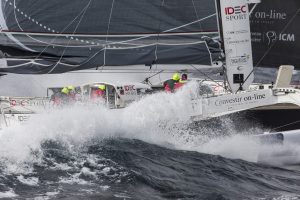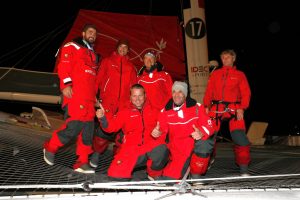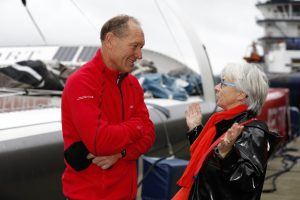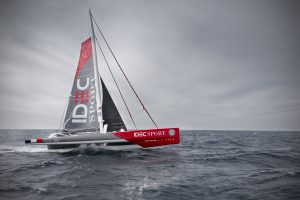Twenty-four hours after their departure in quest of the Jules Verne Trophy, Francis Joyon and his crew met with a difficult start before finding their cruising speed on Monday morning, thanks to very favorable winds. The maxi-trimaran is now sailing down the Portuguese coast.

We can’t exactly say that Francis Joyon got off to a flying start on his second attempt at the record. Anything but. In conjunction with Marcel Van Triest, the Idec Sport team’s router and meteorologist, the following decision was made: to set off despite weak winds, with the prospect of finding good sailing conditions later along the course. And that’s precisely what happened. Joyon and Co were initially forced to tack due to a quasi-absence of wind. But then, at dawn, breezes finally stirred to the crew’s great joy.
Retour aux conditions de glisse pour IDEC SPORT pointé à plus de 31 noeuds @TJV_officiel pic.twitter.com/K1qnB0KqLC
— IDEC SPORT (@idecsport) November 21, 2016
In this way, they sped across the Bay of Biscay, enabling Francis Joyon to make up for time lost earlier in the day. After 24 hours of effort, the Idec Sport crew found themselves 182 miles off the record set by Loïck Peyron in 2012.
In any case, after this first day at sea, Marcel Van Triest shows optimism: “We envisage making a decent time to the Equator, of roughly 5 days and twelve hours, which is clearly not as good as the one during our 2015 attempt (editorial note: 5 days and 1 hour). But we then expect a very promising time of about 13 and a half days to the Cape of Good Hope, along with the possibility of avoiding going too far south in the ice zones, as our routing suggested when we were looking at an opening on 6 November.”
Isabelle Trancoen (article translated from French)








